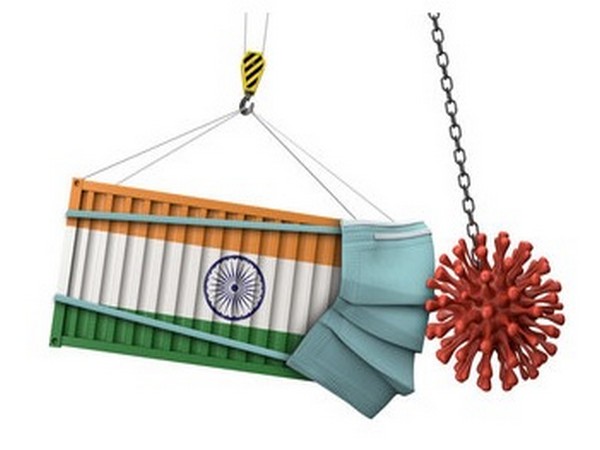Rise and Fall in India: Emotions regarding COVID-19 calm down in India though cases increase - A study by eye square
As the world begins a tentative transition to a 'new-normal', India is among those rising from one of the most severe and comprehensive national lockdowns instated at the end of March.

- Country:
- India
Thiruvananthapuram (Kerala) [India], July 7 (ANI/PRNewswire): As the world begins a tentative transition to a 'new-normal', India is among those rising from one of the most severe and comprehensive national lockdowns instated at the end of March. eye square, a global leader in human experience research, wanted to better understand the emotional landscape in India with regards to the Coronavirus pandemic. The company conducted an online panel study with 300 participants across India from March 20-April 2, 2020, and the second wave of 300 participants from May 22-24, 2020. The data were collected through a combination of implicit measurement (reaction time to 38 attributes) and explicit questions.
IMPLICIT reactions - though high in international comparison - are starting to decline Overall, participants in India continues to show a strong emotional reaction to the Coronavirus pandemic, with particularly high responses for certain attributes like 'problem', 'India', 'danger'. In general, however, the intensity of emotional reactions has declined for several attributes since the beginning of the lockdown, including for 'danger', 'life-threatening', 'death', and 'anxiety'. Perhaps as a result of the lifting of restrictions, the association with "information" has also declined.
While the implicit responses remain quite similar across the board between the waves one and two in India, they remain higher than responses recorded in Germany across attributes and time. The decrease in EXPLICIT concerns about health; decrease in cancellations
Overall, from wave one to wave two, explicit responses reflected a greater concern about the economy than about the Coronavirus' threat to participants' health or that of their family. In fact, as the number of people who personally knew someone infected with / quarantined due to COVID-19 increased, there was a significant decrease in the participants' stated concern for their health, and perhaps as a result, a decrease in the share of participants who were reporting cancelling work, domestic travel, and events with under ten participants moving forward. Stronger IMPLICIT reaction: Younger participants, those with higher media consumption
Compared with the first wave of research, the younger Indian population (ages 16-39) generally had a stronger emotional reaction to the Coronavirus than the older (ages 40-69). This polarized array of responses indicates confusion in the emotional profile of the younger population with regards to the Coronavirus pandemic. People with a self-stated increase in their media consumption in the recent past more strongly associate the pandemic with 'fear', 'threat', 'death', 'dying', 'exaggerated', 'fate', 'contact', 'Germany', and 'anxiety'. This indicates that media coverage of the topic at this stage of the pandemic still seems overblown and confusing to some, though the message of social distancing and the importance of reducing contact to slow the spread of the disease does seem to be getting through, as does the seriousness of the virus itself.
As the lockdown lifts, where does India find itself on the Corona Wheel? With restrictions easing, over half of participants in India find themselves in the 'Hyper-Strength' phase, with less than 10 per cent feel like they have already reached a 'Neo-Normality'. As the surge in cases continues amidst the easing restrictions, an increase in the feeling of "Turmoil" may be expected, as the Corona Wheel takes yet another spin before finding its eventual rest in 'Neo Normality'.
This story is provided by PRNewswire. ANI will not be responsible in any way for the content of this article. (ANI/PRNewswire)
(This story has not been edited by Devdiscourse staff and is auto-generated from a syndicated feed.)
- READ MORE ON:
- India
- Thiruvananthapuram
- Kerala
- Germany
ALSO READ
US Delegation to Embark on Trade Mission to India to Discover Promising Agribusiness Opportunities
NEWSMAKER-He once sold tea, now India's Modi seeks his own 'tryst with destiny'
INSIGHT-India's Gandhi dynasty, trailing Modi, battles for political survival
ADB forecasts robust investment and consumer demand to boost India's GDP growth to 7% in FY25
India's Explosive Growth over the Past Decade, According to Silicon Valley Entrepreneur










